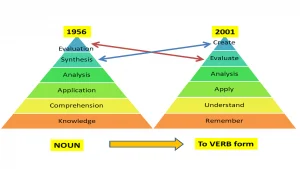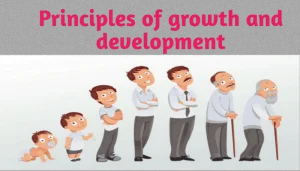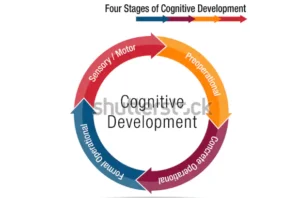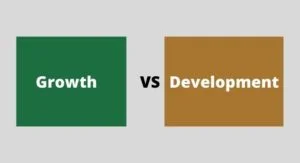Kohlberg’s Theory of Moral Development is one of the most important theories in the field of human psychology. Lawrence Kohlberg (1927-1983) was an American psychologist best known for his theory of Stages of moral development. He has based his theory of moral development on the findings of his studies conducted on hundreds of children from different cultures.
Morality can be developed either negatively or Positively, depending on how an individual accomplishes the task before him during each stage of moral development across his life span.
Some important concepts of Kohlberg’s moral development theory
1. Moral Realism: Rules are fixed and rigid we cannot break the rules. if we break the rules we get punishment.
Example: If you break the traffic signal rules you get a punishment
2. Moral Cooperation: If your intention is right you can break the rules
Example: If you break the traffic signal rules by allowing the ambulance to pass through.
3. Moral Dilemma: Confusion between the right and wrong
Example: You have an SSC, Bank and Teaching Exam on the same day, and you might be confused to choose the right one
4. Moral Reasoning: It is a thinking process involved in the judgement of the question of right and wrong
Example: Vote for the right Politician is moral reasoning
What is the Heinz Dilemma?
Kolhberg always wanted people to decide what is right and what is wrong. In order to explore this area, he read a story containing a moral dilemma for the different age groups of children also known as the Heinz Dilemma. In the Story, A person’s wife is suffering from a disease, He is trying to obtain an expensive drug that his wife needs to treat the disease.
The man does not have enough money in his pocket to buy this drug to save his wife’s life. He begs the pharmacist to reduce the price, but the pharmacist refuses. So, the man decided to break into the pharmacy to steal the drug. Kohlberg ask the children to decide whether the man was right or wrong in his decision. Kohlberg was not interested in whether they said the man was right or wrong, he was interested in finding out how they arrived at such a decision. He wanted to know what they thought made something right or wrong
Also Read: Piaget’s Stages of Child Development
Kohlberg Theory of Moral Development: Level and Stages
There are 3 levels and 6 Stages of Kohlberg’s Moral Development Theory these are-
Level-1: Pre-conventional Morality / Pre-morality (Before age 9 years)
Stage I: Obedience and punishment
Stage II: Individualism and exchange/TIT for TAT
Level-2: Conventional Morality
Stage III: Interpersonal Relationship/ Good Boy-Nice Girl Orientation (Early Adolescence)
Stage IV: Law and Order Orientation
Level-3: Post-Conventional Morality (Late Adolescence/Adulthood)
Stage-V: Social Contract/ Individual Right
Stage-VI: Universal Ethical Principle
Level-1: Pre-conventional Morality / Pre-morality
- The first level of morality, is pre-conventional morality (most nine-years-old and younger, some over nine). At this stage, we do not have a personal code of morality. Instead, our moral code is shaped by the standards of adults and the consequences of following or breaking their rules.
- At this level, authority is outside the individual and reasoning is based on the physical consequences of the action.
- It can be further divided into two stages: obedience and punishment and Individualism and exchange
Stage I: Obedience and punishment
- This stage includes the use of punishment so that the children refrain from doing the action and continue to obey the rules.
- Example: A fourth-grade child refrains from running in the hallway (Corridor) to avoid the consequences involved in breaking the school rules.
Stage II: Individualism and exchange/TIT for TAT
- In this stage, the person is said to judge the morality of an action based on how it satisfies the individual needs of the doer.
- Example: Elementary school children think, if you break my pencil I will your (Tit for Tat)
- Or Sharing tiffin (Individualism and Exchange)
Level-2: Conventional Morality
- The second level of morality involves stages III and IV of moral development. At the conventional level, we begin to internalize the moral standard of value adult role models
- Conventional morality includes the society and societal roles in judging the morality of an action
Stage III: Interpersonal Relationship/ Good Boy-Nice Girl Orientation
- In this stage, a person judges an action based on the societal roles and social expectations before him
- For example, A child gives away her lunch to a street peasant because she thinks doing so means being nice or good
Stage IV: Law and Order Orientation
- This stage includes respecting the authorities and following the rules, as well as doing a person’s duty. Society is the main consideration of a person at this stage.
- Example: Wear a mask and frequently hand sanitization to avoid spreading coronavirus
- Or A policeman refuses the money offered to him under the table and arrests the offender because he believes this is his duty as an officer to maintain peace and order in society
Level-3: Post-Conventional Morality ( Late Adolescence/Adulthood)
- The post-conventional morality includes stages 5 and 6. This is mainly concerned with the universal principles that relate to the action done.
- Individual judgement is based on self-chosen principles and moral reasoning is based on individual rights and justice.
Stage-V: Social Contract & Individual Right
- In this stage, the person is looking at various opinions and values of different people before deciding on the morality of an action. In another sense, once people reach stage five, they normally believe that society is a “contract” that they enter in order to benefit everyone, while also recognizing that different society has their different values.
- All people work together for the betterment of society and change the unfair laws that exist in Society.
- Example: Democratic govt is theoretically based on stage five reasoning
- Or It cannot be right that huge corporations sometimes pay no taxes; that law needs to be changed so that the burden of taxes falls more equally on everyone’s shoulder
Stage-VI: Universal Ethical Principles
- The final stage or highest stage of moral reasoning is based on when a person considers universally accepted ethical principles. This judgement may become innate and may even violate the laws and rules as the person becomes attached to his principle of justice. In another sense, A person takes a risk of their own life to save others’ life.
- Example: Army officer drags their life into an extreme risk to save others
- Or In Madhya Pradesh, A police constable saved 400 school children, A bomb was found in a school at that time there was no bomb disposal squad at hand, He ran for 1km with a 10 kg bomb in his arms to save the children present in school
In Conclusion,
Morality can be developed either negatively or positively depending on how people accomplish the task. Parents, Schools and society play a crucial role in developing the morality of children
Kohlberg’s Stages of Moral Development Summary
| Level and Stage | Description |
| Level-1: Pre-conventional Reasoning | Stage-I: Punishment and obedience |
| Stage-II: Individualism and exchange | The ethics of ‘what’s in it for me? |
| obeying rules and exchanging favours are judged in terms of benefit to the person. | The ethics of others. Typical often to 20 years old. The nature comes from conformity to the rules and conventions of society. |
| Level-2: Conventional Ethics | Rarely encountered in life. Ethics determine by an individual’s conscience guided by abstract principles of justice and equality. |
| Stage-III: Interpersonal Harmony | Sometimes called “Nice girl/good boy”. Ethical decisions are based on what please, help, or in approved by others. |
| Stage-IV: Law and Order | The ethics of order. Right is doing one’s duty. obeying the law, and maintaining an orderly society |
| Level-3: Postconventional Ethics | Rarely encountered in life. Ethics are determined by an individual’s conscience guided by abstract principles of justice and equality. |
| Stage-V: Social Contract | The ethics of principle. Rarely reached before 20 years of age and only by a small segment of the population. focuses on the principles underlying society’s rules. |
| Stage-VI: Universal principles | Rules are based on principles of justice and the common good and are manually agreed upon by members of society. |
“Being a good person is important in life, when you give good out into the world you will receive it back”



